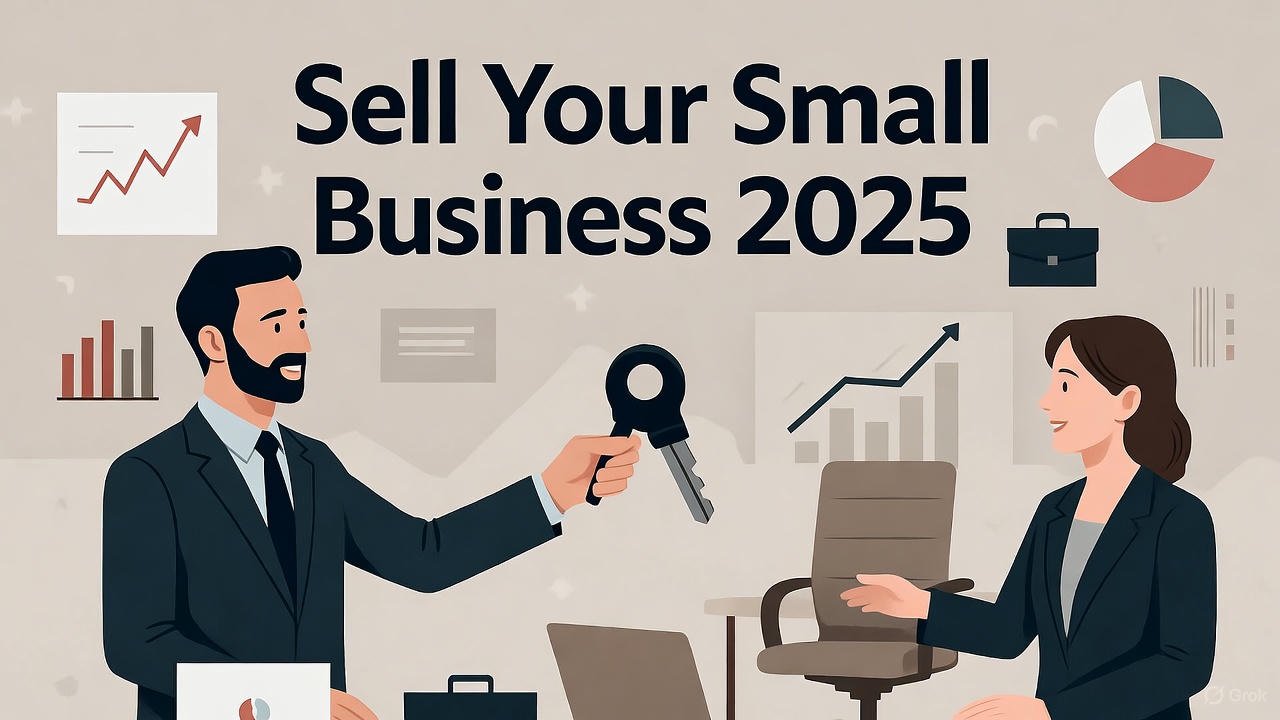Selling a small business can be a transformative milestone, offering a chance to cash in on years of hard work or pivot to new ventures. As we navigate October 2025, with markets buzzing from technological advancements and shifting consumer trends, the timing might be perfect to sell. Whether you’re retiring, seeking fresh challenges, or simply maximizing your investment, this guide walks you through the process to sell your small business effectively, ensuring you get the best value while minimizing stress.
Assessing Your Business’s Value
The first step is determining what your business is worth. In 2025, buyers are keen on profitability, scalability, and digital presence, so start with a thorough financial review. Compile at least three years of financial statements—profit and loss, balance sheets, and cash flow reports—to highlight consistent revenue and growth. Consider hiring a professional appraiser or business broker to conduct a valuation, factoring in assets, customer base, and market conditions. Industry multiples (e.g., 2-3x annual earnings for retail) or revenue-based models can serve as benchmarks, adjusted for your niche. For instance, a tech startup with strong AI integration might fetch a premium. Be honest about debts or liabilities to avoid surprises during negotiations.
Preparing for the Sale
Buyers want a turnkey operation, so polish your business to shine. Update your operational systems, streamline processes, and document procedures to ease the transition. Enhance your digital footprint—optimize your website, boost social media engagement, and showcase recent successes like new client wins or product launches. Address any legal or compliance issues, such as permits or contracts, and gather all necessary paperwork: tax returns, leases, and employee agreements. A well-prepared business can command 10-20% more, according to recent small business sale data. Consider a pre-sale audit to identify and fix weaknesses, giving buyers confidence.
Finding the Right Buyer
Identifying the ideal buyer is crucial. Potential candidates include competitors looking to expand, individuals seeking a lifestyle change, or investors hunting for profitable ventures. Leverage online marketplaces like BizBuySell or Bizop.org, which connect sellers with vetted buyers, especially in 2025’s active opportunity market. Network locally through chambers of commerce or industry events, and tap into your professional circle—sometimes the best offers come from unexpected sources. Confidentiality is key; use nondisclosure agreements (NDAs) to protect sensitive information during early discussions. Tailor your pitch to each buyer’s goals, whether they value steady cash flow or growth potential.
Setting the Price and Negotiating
Pricing your business competitively yet profitably requires balancing market research with your financial goals. In 2025, small business sales are seeing averages of 2.5-4x EBITDA (earnings before interest, taxes, depreciation, and amortization), depending on the sector. Set a realistic asking price based on your valuation, but be open to negotiation. Prepare a compelling sales memorandum detailing your business’s strengths—unique selling points, loyal customer base, or recurring revenue. Negotiations might involve payment terms (e.g., cash upfront or seller financing), so decide your flexibility. A broker can mediate, typically charging 5-10% of the sale price, ensuring a smoother deal. Please visit for more joy.link free kredit rm15.
Finalizing the Sale
Once you have an offer, due diligence begins. Buyers will scrutinize your finances, operations, and legal standing, so maintain transparency to build trust. Work with a lawyer to draft a purchase agreement, covering price, terms, and contingencies like employee retention or client contracts. Consider an earn-out clause if the business’s future performance is uncertain, linking part of the payment to post-sale success. Close the deal with a signed contract, and transfer ownership smoothly—update licenses, notify customers, and hand over keys or digital access. The process can take 3-6 months, so plan accordingly.
Post-Sale Considerations
After the sale, your role might not end immediately. Many agreements include a transition period where you train the new owner or consult, often for 30-90 days. Use the proceeds wisely—consult a financial advisor to invest, pay off debts, or fund your next venture. Emotionally, prepare for the shift; selling can feel like letting go of a child. Celebrate your achievement, and consider sharing your story to inspire others on platforms like Bizop.org.
Seizing the 2025 Opportunity
In 2025, with interest rates stabilizing and demand for small businesses rising, the market favors sellers who act decisively. A well-executed sale can yield significant returns, especially if your business aligns with trends like sustainability or tech. Start now—assess, prepare, and market your business to unlock its full potential. The journey from owner to seller is challenging but rewarding, paving the way for your next chapter.



